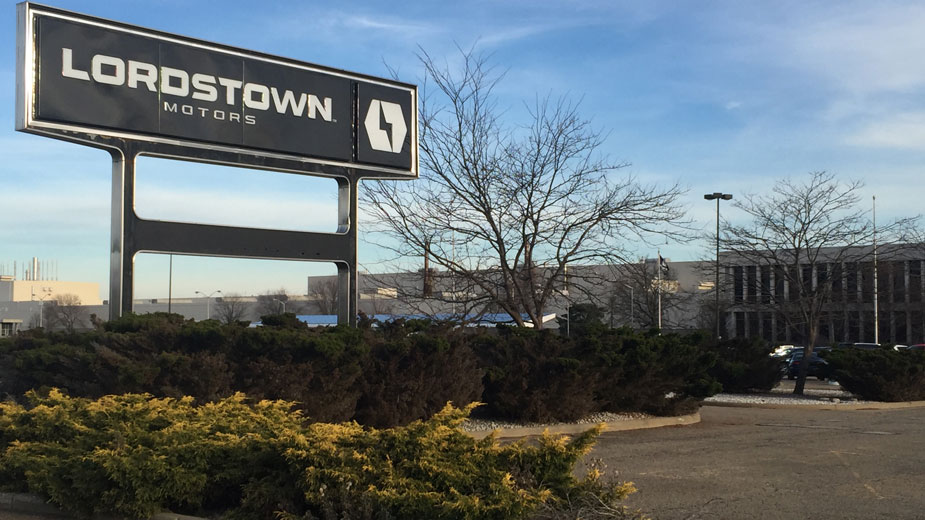Lordstown Motors Investors Sue Executives, Directors, Alleging Misconduct
YOUNGSTOWN, Ohio – A new lawsuit filed in U.S. District Court last week in Delaware alleges investors in Lordstown Motors Corp. lost more than $1 billion as a result of misconduct and negligence by the company’s executives and directors.
According to court documents, investors Daniel Cohen and David Cohen filed a stockholder derivative complaint against 17 executives, directors and former directors of Lordstown Motors and DiamondPeak Holdings Corp., whom they say enabled Lordstown Motors to issue “improper public statements concerning its business, operations, and prospects.”
These statements, court papers say, “have devastated Lordstown Motors’ credibility and caused the company to lose more than $1 billion in market capitalization.”
The lawsuit is the latest salvo in a handful of class action complaints filed against Lordstown Motors in the wake of a scathing short seller’s report issued March 12. The report, compiled by Hindenburg Research, alleges that the startup electric-truck manufacturer faked its pre-orders of 100,000 vehicles and has made misleading statements about its production capabilities.
This particular court action comes with a twist in that the plaintiffs are suing on behalf of Lordstown Motors and specifically target the company’s directors and former directors of DiamondPeak, a special purpose acquisition company that merged with the automaker in October.
The merger was first announced Aug. 3. Once the merger was completed, Lordstown Motors was publicly listed on the Nasdaq exchange under the symbol RIDE.
A stockholder derivative complaint is a lawsuit brought by a shareholder on behalf of a corporation. On most occasions, such a complaint is filed when a corporation has a valid case, but refuses to act on it. If successful, any judgment would be returned to the company, not the plaintiffs filing the action.
This latest court action names as defendants Lordstown Motors CEO Steve Burns; President Rich Schmidt; chief financial officer Julio Rodriguez; and Michael Fabian, director of stamping operations.
It also names as defendants current Lordstown Motors directors David Hamamoto (also a former DiamondPeak director), Jane Reiss, Keith Feldman, Dale Spencer, Martin Rucidlo, Mickey Kowitz, Angela Boydson and Michael Gates. Former DiamondPeak directors Mark Walsh, Andrew Richardson, Steven Hash and Judith Hannaway are also named as defendants.
The suit names Lordstown Motors only as a nominal defendant.
Lordstown Motors purchased General Motors’ Lordstown plant in November 2019 and plans to begin production of the Endurance in September – billed by the company as the world’s first all-electric commercial pickup.
However, the Hindenburg report alleges that company officials repeatedly made materially false statements and overstated potential demand for the Endurance. According to the report, Lordstown Motors’ orders were “largely fictitious and used as a prop to raise capital and confer legitimacy.”
Lordstown Motors’ stock tanked more than 16% on March 12, the day the report was published, “thereby erasing $517 million in stockholder value,” the lawsuit says.
Furthermore, Lordstown Motors CEO Steve Burns disclosed during a conference call March 17 that the U.S. Securities and Exchange Commission had initiated an inquiry into the company and that the company was cooperating. “On this news, the stock dropped another 13% to $13.01 per share, thereby erasing an additional $367 million in market capitalization,” the lawsuit says.
Another $213 million in shareholder value was lost after Hindenburg published photographs on March 24 of a prototype of the Endurance breaking down during a commercial shoot, the lawsuit alleges.
According to court papers, the defendants are liable because they made, allowed or failed to correct improper statements made by Lordstown Motors (or its predecessor) in filings with the U.S. Securities Exchange Commission, press releases, and other public statements concerning the company’s business, operations and prospects.
“These actions have irreparably damaged Lordstown’s corporate image and goodwill,” documents say. “For at least the foreseeable future, Lordstown will suffer from what is known as the ‘liar’s discount,’ a term applied to the stock of companies who have been implicated in misleading the investing public,” the lawsuit says. This stigma will impair the company’s ability to raise equity capital or debt on favorable terms, court papers say.
The lawsuit alleges the defendants violated the U.S. Securities and Exchange Act, breached their fiduciary duties to the company and were unjustly enriched.
It especially singles out Rodriguez, Hamamoto and Schmidt for selling Lordstown shares “while in possession of material, adverse nonpublic information that artificially inflated the price of Lordstown stock,” the complaint says. “As a result, Rodriguez, Schmidt, and Hamamoto profited from their misconduct and were unjustly enriched through their exploitation of material and adverse inside information.”
Hamamoto, for example, sold 1 million shares at $16.38 per unit for a total of $16.38 million on Oct. 22, 2020, according to SEC documents. A footnote in a regulatory filing describing the transaction shows that the shares were sold to trusts established for family members.
Schmidt, Lordstown’s president, jettisoned more than $6.38 million worth of stock over four transactions between Dec. 12, 2020, and Feb. 3, 2021, SEC documents show. Rodriguez, the company’s CFO, sold shares worth a total of $251,100, documents show.
Plaintiffs in the case are asking for a court order “disgorging all profits, benefits, and other compensation obtained by these defendants” for their “wrongful conduct and fiduciary breaches,” court papers say.
Copyright 2024 The Business Journal, Youngstown, Ohio.


